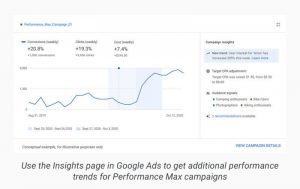
SEO is getting tough. There’s more competition and Google is smarter than ever. So in order to get the edge over your competitors, you’ve got to be doing things right.
Below, we’ve identified some toxic habits that might be holding back your SEO efforts. Rid them from your soul and increase your chances at winning top rankings for the keywords that matter most for your business.
1. Optimizing for SEO before user experience
This is also known as thin crappy content, or as I call it, “aimless content.”
You create a blog post that is the desired amount of words, lets say 1000, it has what you consider the perfect keyword density and your title and images are all optimized for your keyword. That all sounds great right? Except the actual content is boring, re-hashed generic crap. It’s a generic blob full of buzzwords. Nobody really wants to read it.
This tactic may still work right now, but Google is getting better and better at detecting thin content. Not to mention if you are outreaching, and a site accepts your thin crappy content, chances are a link from them isn’t that valuable. Metrics to keep in mind that Google is tracking are: comments, bounce rate, traffic, engagement, length, and what content is above the fold.
As long as your content is created first for the user, you wont have to worry about the future and higher quality sites will accept it when doing outreach.
Pro Tip: If you want content Ideas that will perform well for the users, you can use a tool like Buzz Sumo. Throw in a competitors URL and it will spit out the best performing pieces of content on that entire domain. It does this with social metrics, so although it doesn’t give you actual traffic, social metrics are a good indicator.
2. Links, links more links!
Yes links still matter, no SEO is not dead. But many SEO’s mistakenly think that more links is always better.
This is not the case.
In comparing the top 5 ranking sites over hundreds of SERP’s the trend that I have noticed is the no.1 spot almost never has the most backlinks. It just has the most high quality backlinks and almost always, and by almost I mean over 90% of the time the number one site has the highest domain spread. Don’t worry about more links, worry about good links.
Pro Tip: Use a platform like Bright Edges competitive analysis tools. This will place all your metrics like domain spread, average external link domain authority, rankings, total links and more and compare it to the top ten on each keywords SERP. This gives you a good idea of the number and quality of links that each individual SERP is going to require for a competitive ranking.
3. Disorganization
Keyword research, competitive research, bloggers/webmasters contact info for outreach; the list is long of information you gather and need to keep track of on a daily basis. Each SEO may have a different system for keeping all their ducks in a row, but having a system is the important part.
Maybe you use Google Drive to organize your spreadsheets containing all of this information. Or maybe you roll everything into your favorite task management system like Podio or Glip. Whatever you’re doing, make sure it helps you keep everything straight. Letting tasks slip through the cracks is no fun, for you or the client.
Pro Tip: If Google Drive or excel is your system of choice, you can integrate your spreadsheets with a data visualization system and quickly create simple, good looking charts viewable from something like Data Hero’s excel dashboard. These charts can help you make decisions based on insights you might not have noticed otherwise.
4. More pages!
There was a time that more pages had correlation with rankings. Most of the ‘old’ SEO practices like keyword stuffing have all gone away and generally most people understand they don’t work anymore, but for some reason lots of people still think that more pages automatically means better rankings.
It doesn’t.
Better content generally as a correlation with rankings, not number of pages.
Pro Tip: If you want to see for yourself you can note the top ten ranking sites on your desired SERP and then google power search each of them by searching: site:example.com. Right under the search bar Google will list the number of indexed pages from that domain. Compare your site versus the top ranking ones.
5. Not understanding meta descriptions
Meta descriptions used to play a direct role in ranking for the almighty Google algorithm. First order of business, they don’t anymore. So stop thinking they do.
However, meta descriptions are still very important to SEO as they directly influence click-through rates. And click-through rates do factor into ranking. So meta descriptions in a round about way still influence rankings.
Make sure that they are compelling and juicy so that if you do start to rank on the first page of a SERP people actually click on your site. This indicates to google that your landing page is relevant to the users intent. Coupled with good relevant landing page that prevents a high bounce rate your metas will still play their role in ranking.
Pro Tip: If you want some help writing killer headlines, meta descriptions and all around compelling titles, inboundworks has this free resource.
6. Obsessing over rankings daily
Look, rankings fluctuate; they fluctuate all the time actually. Sometimes you may drop, or climb temporarily. Google is constantly “testing” out sites as part of the algorithm gathering the data it needs to make decisions. Focus more on your average ranking over a period of time rather than what you are ranking today vs yesterday. This will help you from making erroneous assumptions about your efforts or doing anything rash like disavowing a perfectly good link.
Pro Tip: Tools like Moz’s analytics can provide data to just do this. Track hundreds of keywords over time and watch trends.
Conclusion
It’s 2015! Keep these 5 toxic SEO habits out of your life for good. Your chances of success will increase dramatically if you do.
If you’re like many business owners who just don’t have the time or effort to do SEO in-house, check out inboundworks SEO Blastoff. SEO Blastoff was developed after years of experience and trial and error. Simply stated, we get results.
(432)






